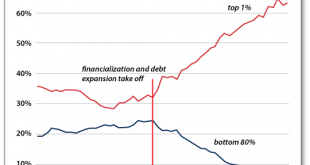Many investors who avoid real estate are afraid of the anticipated difficulties of being landlords. They hear horror stories. They think to themselves, “I don’t want to fix toilets,” and “I don’t want to get calls from tenants in the middle of the night.” These are common excuses I hear from people avoiding a challenge.
There are strategies for intelligently managing a property that any capable person can implement. As well, many people fear the threat of a lawsuit. And rightly so. We are a sue-happy society. Attorneys are rewarded for bringing claims against the wealthy. But know that there are strategies you can implement to protect yourself. In all, the rewards of owning real estate far outweigh the drawbacks for educated investors.
In recent years, many have come to fear the entire market. With the meltdown in 2008, thousands of real estate investors were caught with properties worth less than the mortgage on the parcel.
These underwater properties have caused a great deal of turmoil for many investors. Some will never re-enter the real estate market. But others, who do not fear but rather appreciate the market, will do well. For in any environment there is room to make money in real estate.
Similarly, when it comes to lack of knowledge, most people are unaware of the advantages to be gained from investing in real estate. Most of us in our society aren’t raised to consider investing in real estate. It’s certainly not taught in schools. The standard is to go to school, get a job, climb up the corporate ladder of a career, save money, buy stocks, bonds and mutual funds. Most don’t realize that real estate investments allow our money to grow at a greater pace than typical paper investments. In fact, real estate has historically over the long term trended up in value and yielded higher returns than the securities markets.
There are really three types of income:
1. Earned Income
This is what you bring home from work in the form of a paycheck. You go to the office from eight to five. If you stopped going to work, your earned income would end.
2. Passive Income
This is what comes to you from an investment such as real estate. If you get sick and can’t earn a paycheck from your job, your real estate is still working for you.
(Even better, most of this income may not be subject to Social Security and Medicare withholdings, and in some cases incurs no tax at all because of your ability to depreciate a property’s value, or to defer claimed gains by rolling over a sale to another property.)
3. Portfolio Income
This is what comes from the dividends and increases in value of paper assets such as stocks, bonds, and mutual funds. It’s the most popular form of investment income for the masses, because it’s easier to manage than real estate and other investments.
The Rich Dad philosophy is to diversify your portfolio, and to put your savings and earnings into three different areas: businesses, real estate, commodities, and paper assets. Your investment risk must be spread out.
In my first book, Rich Dad Poor Dad, I explain how one of the things I learned from my rich dad was how investing in the three asset classes—business, real estate, and paper assets—contributed to his wealth.
Rich dad’s formula for wealth was:
- starting a business
- taking the cash flow from that business (mostly after-tax monies)
- investing in real estate
- and keeping that wealth in real estate and paper assets, where it will keep growing.
When Real Estate Is an Asset and When It Isn’t
I was called a contrarian when I said, “Your house is not an asset.”
Very simply, an asset is something that puts money in your pocket. A liability is something that takes money out of your pocket.
The reason people are confused and think that a home is an asset is because from the 1970’s through the early 2000’s they were able to pull money out of their house in the form of loans, like a real estate ATM. Now that prices are back, they might start thinking the same thing again.
Real estate becomes an asset when it brings you cash flow. As a real estate investor, you will be putting other people’s money—the lender bank’s and your tenants’—to work for you. If your monthly mortgage on a rental property is $5,000, but your tenants are paying you $6,000, then you’re earning $1,000 in cash. This makes your house an asset.
Real Estate Is an Essential Building Block
I often tell people to start small with their first investment. However, let me be clear that this doesn’t mean you should think small. Quite the opposite—you should think big when it comes to where you want to go and what you plan to achieve.
Once you’ve got your big audacious goal, break it down into smaller steps. Start with the smallest step.
Keep moving forward, first with little steps, small investments, and then progress to bigger steps. As your experience and confidence grow with each success—and yes, even with the setbacks—you will get closer and closer to that big goal.
It took me a long time to get to the place where I am today. Just like you, I spent a good portion of my working life trying to earn more money so I could spend it on more things. Slowly, through many years of trial and error, I earned my stripes on the job.
Success or excellence in any field or subject depends on a combination of “doing things right and doing the right things at the right time.” You need a combination of activities and efforts in a specific area of interest to achieve real expertise.
It was the financial education I received from rich dad starting at the age of nine that helped me control the fear of investing.
The more deals that I did, the more educated I became, and the more educated I am, investments become less risky.
Regards,

Robert Kiyosaki
Editor, Rich Dad Poor Dad Daily
P.S. Hey… my friend and colleague, Tim Sykes, just shared something with me…
It could help you make returns in just a few days…
Talk about fast turnaround… it’s what Tim calls his “Weekend Profits.”
Click here to learn about his strategy.
On Friday – He places one simple trade…
What’s even better is, you can use this same exact strategy he uses every single weekend…
But make sure you click before Friday so you can get started right away.
Click here before Friday to get the details.
Source link
 Best Stock Hints Latest Tips To Buy & Invest Best Stocks Today
Best Stock Hints Latest Tips To Buy & Invest Best Stocks Today


